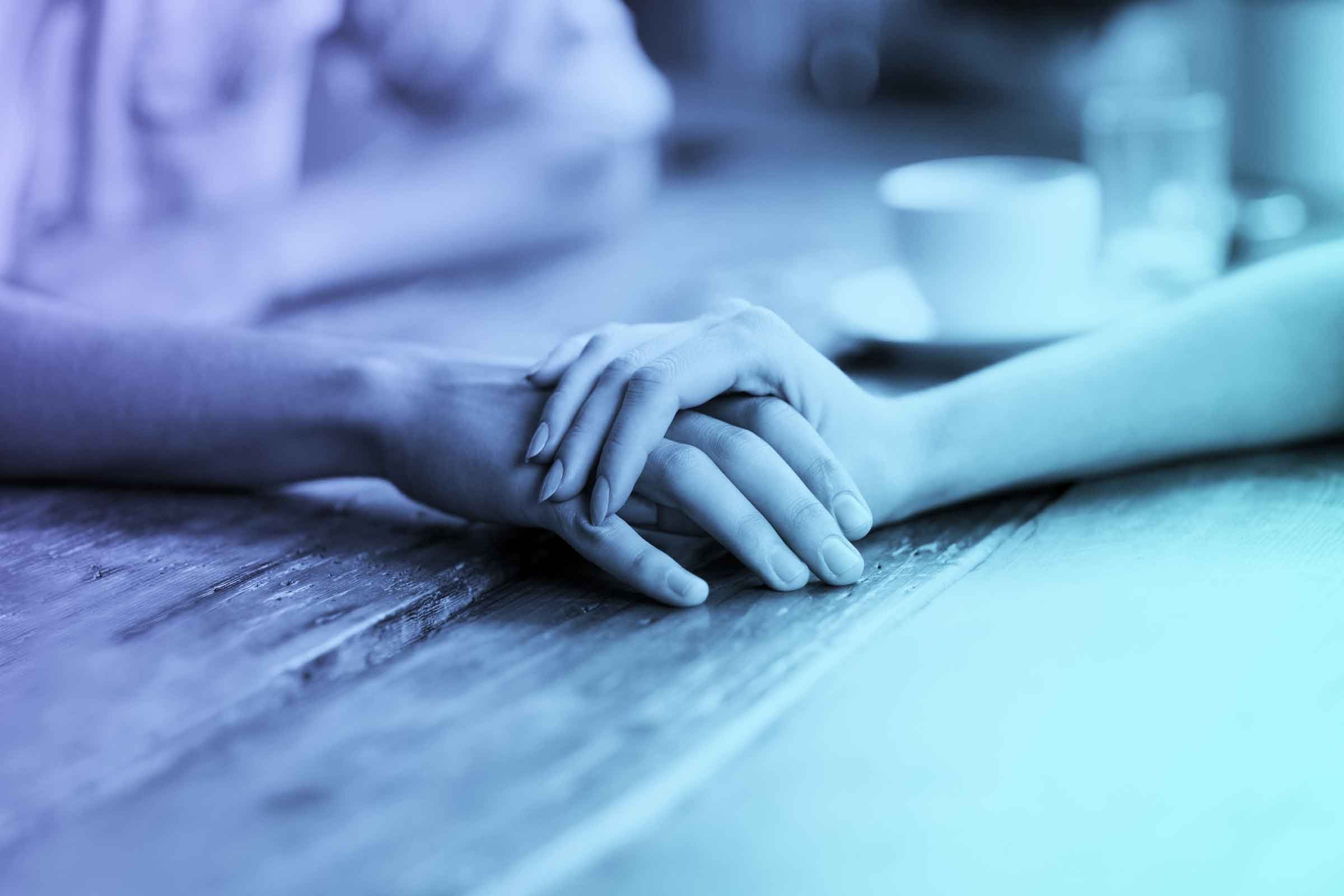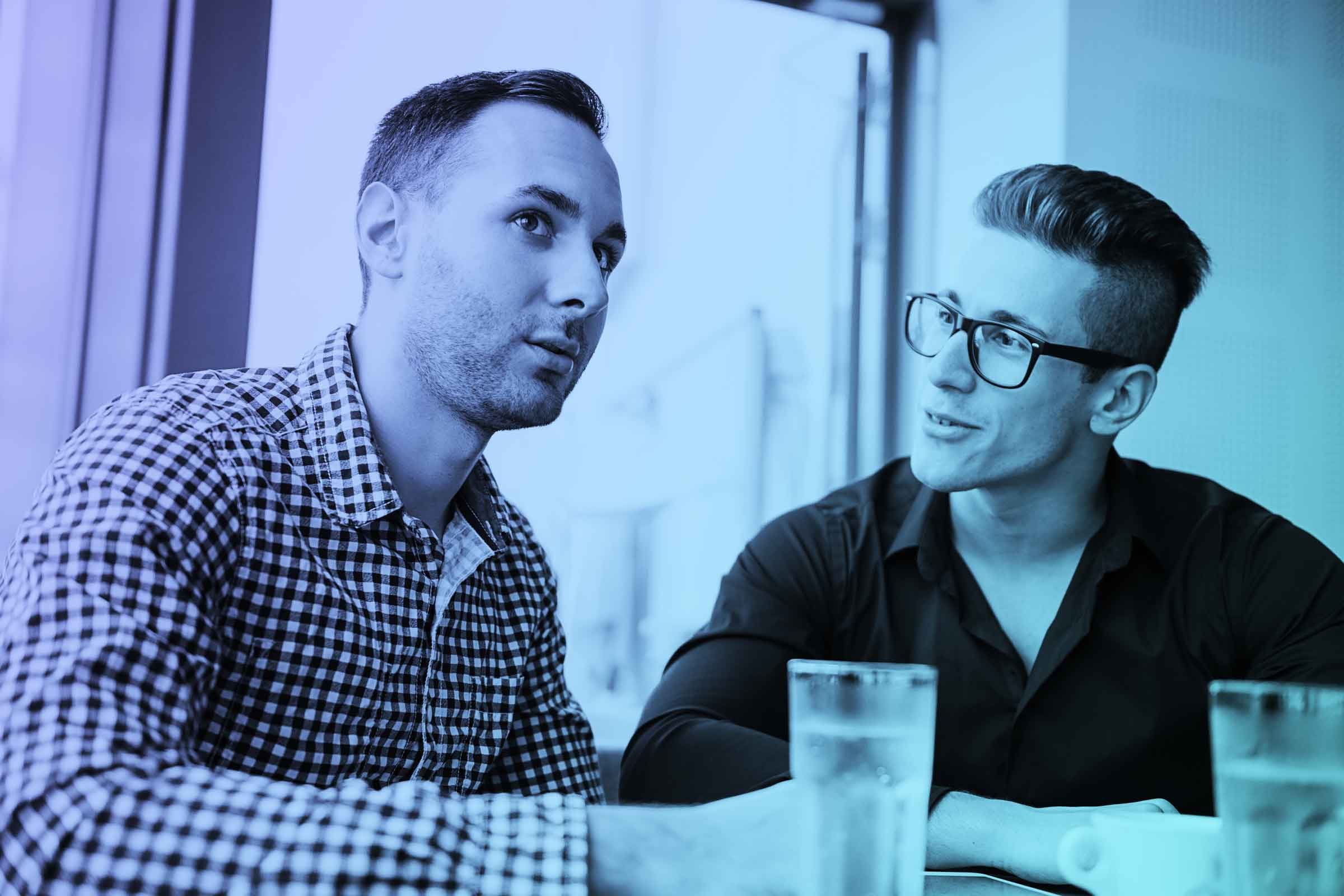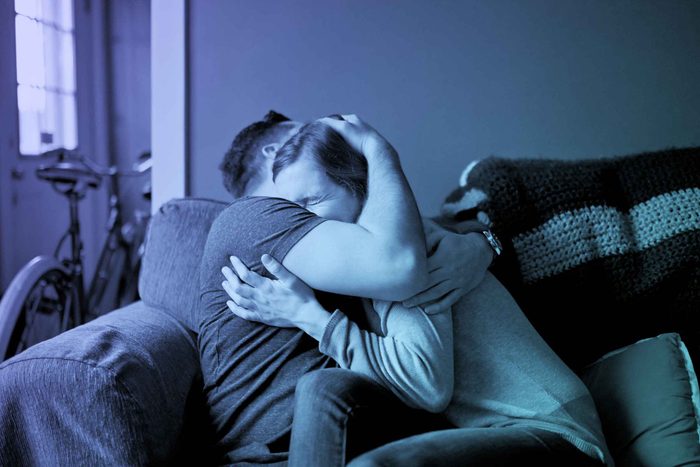
You put others’ needs first
An empathetic person places the needs of people—even animals—over his or her own. “Empathic people are often people pleasers who put other people first,” says Judith Orloff, MD, author of Emotional Freedom: Liberate Yourself From Negative Emotions and Transform Your Life and an assistant clinical professor of psychiatry at UCLA with a private psychotherapy practice specializing in empathy. “They want to help others and have large hearts, but they often give too much away and end up exhausted.” Some more empathic people may be so giving and concerned about others that they can dislike people who tend to put themselves first.

You’re an amazing listener
You like to listen rather than speak. You want to hear all the details about a situation so you can understand it completely. “You truly and actively care about others and what they’re saying,” says Stacey Laura Lloyd, a health and relationships writer and co-author of Is Your Job Making You Fat? How to Lose the Office 15…and More!. “It’s one thing to simply hear the words of others, and it’s something entirely different to internalize what others are expressing and then understand and experience their feelings, needs, and motivations.” To take in what you’re hearing, you listen to verbal cues and observe nonverbal ones, keeping yourself engaged in the conversation, just one of the things good listeners do in daily conversations.

People turn to you for advice
People often seek your thoughtful feedback and support. Because they see you as an empathetic listener, they will tell you things they often won’t tell anyone else and ask for your advice, says Fran Walfish, PhD, a relationship psychotherapist, author of Why Empathy Matters, and consultant on CBS’ The Doctors TV show. You often hear “I’ve never told anyone this before”—even from people you’ve just met. You may find yourself drawn to professions that use your compassion and sensitivity, like teacher, therapist, or healthcare professional.

You get drained in social settings
You don’t know how to block out other people’s emotions since you’re so invested in those of others. And that can make you feel anxious, suffocated, and exhausted. “Empathic people often get drained by excessive stimulation and too much talking,” says Dr. Orloff. “They often hate small talk, which is awkward at parties and social settings.” You’d rather be by yourself, but if you do find yourself in an awkward social situation here are a few ways to make small talk less painful.

You’re a natural leader
Bosses who are empathetic tend to get better workplace performances out of their employees. That’s because these employees believe that their bosses have their best interests at heart, according to research published by the Center for Creative Leadership. Empathetic bosses possess good listening skills, compassion, and big hearts. And that means employees trust and communicate with them. “Empathetic people know how to work with a team and let others be heard,” says Dr. Orloff.

You love pets and animals
Even animals are drawn to people who are sensitive and really care about them. Empaths feel energized and soothed by animals’ unconditional love, says Dr. Orloff. That’s why they often have more than one pet. “In society, so many people don’t really understand an empathic person’s sensitivities,” says Dr. Orloff. “But animals are very sensitive, and empathic people love cuddling and playing with them.” In fact, she says that empaths often feel safer around animals than people. Even though they can’t speak, animals are great at showing they care. Not sure what your pet is trying to tell you? This is what your cat is really trying to tell you and what dogs really understand about their humans.

Horrible events in life or on television overwhelm you
Watching unpleasant or tragic events on the news, movies, and television may upset and disturb you to the point that you become teary, ill, or anxious, Dr. Walfish says. It’s hard for you not to empathize with people in pain, even if you don’t know them in real life, she explains. You may often find yourself avoiding the news or certain types of shows since they affect you so deeply. In life, if you see a homeless child, cat, or dog, you often feel guilty when you can’t help more. Empaths may also have some hypochondriac tendencies so if you’re really worried about how you’re feeling, make sure you know these 15 scary symptoms that are actually harmless.

You feel other people’s physical ailments
Empathic people are often like sponges, soaking up the feelings of those around them, Dr. Walfish says. You may not even realize you’re doing it but if you find yourself feeling tired, sick, or depressed for no reason you might want to take a look at those around you and see if you are unconsciously mirroring their symptoms. Feeling other people’s emotions is a sign you could be an empath.

You can often tell when someone is lying
You read people easily, so you can more easily detect when someone is lying. “Empaths can immediately sense when something feels right or if it feels off,” says Dr. Orloff. If you trust yourself, you can extend this ability to understanding not just when someone feels off to you but why. Perhaps their actions don’t match up with their words or what they are saying doesn’t ring true with previous conversations. Be careful, though, as this ability can take you too far in the other direction. Empaths often want to believe others because they understand their feelings which can make you more susceptible to people looking to manipulate you through emotional appeals, Dr. Walfish says. It’s important to check in with yourself about what is best for you and make sure you’re listening to your gut, she adds.

You want to help anyone in pain
You want to help those who are hurting, regardless of what they’ve done to you and who they are. You can’t walk past someone who is suffering (such as a homeless person) without wanting to help him. “Empathic people naturally want to absorb other people’s pain into their own bodies to take it away for the sufferer,” says Dr. Orloff. You feel responsible for the well-being of those around you. You try not to take things so seriously and just let it go, but you can’t. You don’t have to feel helpless, however, start with these 50 random acts of kindness that mean a lot to others but don’t cost a cent.
